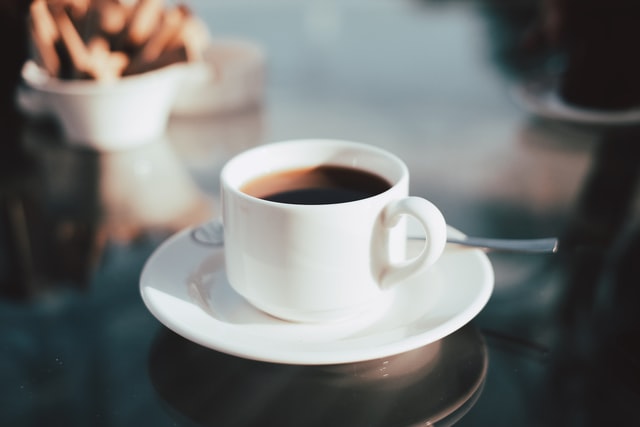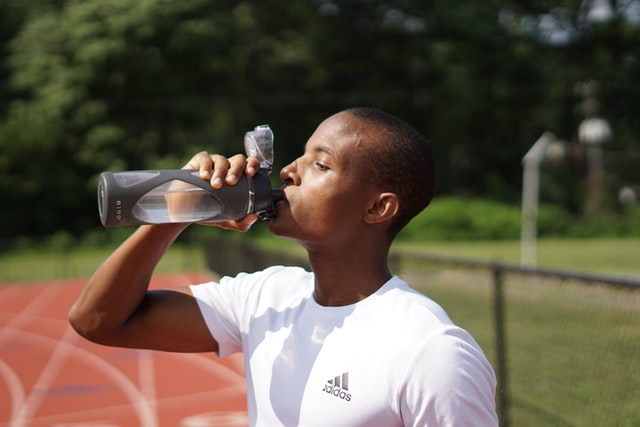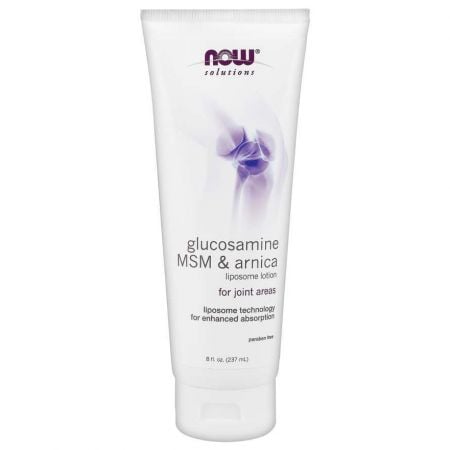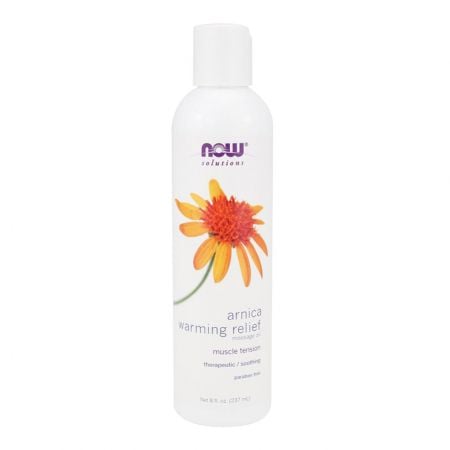
Sore muscles can feel like more than minor discomfort, and finding the perfect remedy is often a process of trial and error.
Not every remedy will work for everyone, but this list contains the best remedies for sore muscles you will want to try. Each treatment should help relieve that achy feeling and get you back to 100% quickly.
Here are the best remedies we’ve found for sore muscles.
[Related: The Benefits of Low-Impact Exercise for Your Joints and More]
What Causes Sore Muscles?
Many things can cause your muscles to feel achy and sore. The most common reason is a build-up of lactic acid. This acid is often released while you're working out and is why your muscles feel sore immediately afterward.
Lactic acid should dissipate after a few days at most, so if your muscles are still feeling sore after that you may be experiencing:
- Dehydration
- An overuse injury
- Blood flow problems from illness or lack of activity
- Lack of minerals such as calcium, potassium, or magnesium
- An effect of certain medications, like statins, chemotherapy drugs, and anesthetics
Are Sore Muscles Good or Bad?
Sore muscles aren't always a cause for concern. It's perfectly normal for your muscles to feel sore for up to 72 hours after a workout, but if the soreness lasts longer than 5 days, you might have overexerted yourself or caused muscle damage.
If you haven't been working out and are experiencing sore muscles, you'll want to dig into why you're feeling this way. If you haven’t had blood work in some time, it’s worth getting checked out to see if you have any deficiencies.
Cramps, Sprains, and Strains vs. Muscle Soreness
It's easy to confuse a cramp, sprain, or strain with general muscle soreness. The symptoms are often very similar, making it hard to determine what you're truly experiencing.
Let's get into how to identify whether that muscle soreness you're feeling is a cramp, sprain, or strain.
Cramps
Cramps are usually easy to identify. You'll experience a sharp, wrenching pain that is impossible to ignore. This pain is short-lived and generally lasts between a few seconds to 15 minutes. Cramps can often be relieved by stretching or rubbing the affected area. Muscle soreness won't vanish after a set time as cramps do.
Sprains
Sprains can sometimes be more painful than breaking a bone, and that pain level should indicate that something more severe than general muscle soreness is going on. A sprain can also cause bruising and swelling, restricting your movement of the affected area.
Strains
Confusing muscle strain with muscle soreness is very common. A strain of your muscles can feel very similar, but some symptoms make it easily identifiable. A muscle strain will swell up and restrict your movement of the affected area. You shouldn't experience these symptoms with general muscle soreness.
[Related: 20 Foods That Increase Blood Flow and Circulation Naturally]
The Best Remedies for Sore Muscles
Anyone affected by sore muscles knows how painful and uncomfortable the sensation is. We've compiled a list of the best remedies for sore muscles so you can relieve that ache and get back to feeling 100%.
1. Coffee Before Workout

Drinking coffee before working out is a proven method for preventing sore muscles. It would help if you drank a cup of coffee 45-60 minutes before a workout to give the caffeine time to reach its peak effectiveness. Not only will this improve your performance during the workout, but it will also reduce your post-workout pain and soreness by 50%.
2. Tart Cherry Juice
Tart cherry juice is a very effective remedy for sore muscles. This juice contains helpful antioxidants and anti-inflammatory compounds that will lessen your pain and accelerate muscular healing. Drinking this juice after a workout or when you're experiencing muscle soreness will work to relieve your pain and quicken your body's recovery.
3. Hydrate During and After Working Out

It's easy to underestimate the importance of proper hydration when working out, but this is one of the most common causes of prolonged muscle soreness. Dehydration causes your muscles to spasm as fluids get drawn out from them, leading to serious muscle soreness. A healthy adult should drink about 15.5 cups of water each day, and you should add a cup for every hour that you're working out to replace the fluids you lose while sweating.
4. Deep Tissue Massage
A deep tissue massage will work wonders to reduce muscle soreness. Deep tissue massages break down scar tissue built up in the muscle and eliminate knots. Both issues can lead to continued muscle soreness, so treating the underlying problem with a deep tissue massage will ease the related muscle soreness.
5. Immediately After You Work Out, Use a Foam Roller (Self-Myofascial Release) or Massage Gun
Using a foam roller or massage gun immediately after you work out will help disperse any build-up of lactic acid and will stretch the muscle to help prevent knots from forming. Myofascial release (a type of massage therapy) is a great technique that can be used for relief after workouts or used before workouts as part of your warm-up routine.
6. Eat Within 30 Minutes of Working Out
Eating before working out can help reduce muscle soreness, cramping, and tension. Eating something high in protein is best, as this will give your body the resources to power through that workout.
7. Get Adequate Sleep
Not getting adequate sleep can cause numerous issues, including muscle soreness! Lack of sleep can cause inflammation which can worsen or prolong muscle soreness. Try to ensure you get at least 8 hours of sleep every night. And if you have trouble falling asleep, read our list of tips and techniques that can help. You can also check out SleepBest to see if it’s right for you.
8. Do Lighter Exercises on Days Following an Intense Workout
Putting yourself through an intense workout will cause your muscles to be sore and vulnerable for the next day or so. If you choose not to take a rest day, try to keep it light. Engaging in lighter exercise after an intense workout will prevent your muscles from becoming strained or tearing lessening the chance you’ll worsen or prolong your muscle soreness.
9. Topical Applications: Arnica, Hot Pepper Rubs, Ice
Sometimes the best remedy for sore muscles is the simplest remedy. Grab an ice pack to help reduce the swelling and numb the area. Also, herbal creams, like those made with Arnica, work well to reduce inflammation and soothe sore muscles. Another great trick is to pick up a jar of hot pepper rub. The capsaicin in the peppers, which gives them that delicious spiciness, will also soothe the pain of your sore muscles.
10. Epsom Salt Baths
A long, soothing bath with warm water feels great when you’re sore. And you can get an additional benefit by adding Epsom salt. When added to your bath, Epsom salt will break down into magnesium and sulfate and these minerals will get into your body through your skin, helping to reduce muscle soreness, inflammation, and the pain associated with arthritis.
11. Apple Cider Vinegar
Apple cider vinegar is an excellent remedy for sore muscles. You can apply it topically to the painful area or mix a teaspoon in a glass of water and drink it daily. Apple cider vinegar reduces inflammation, and its alkalizing properties may neutralize any acid in your muscles, alleviating pain and soreness.
Bottom Line
Now you know all the best remedies for sore muscles! These remedies are great for anyone who needs relief, and many of them can be done daily as preventative maintenance.
If your pain management up until now has included NSAIDs like Asprin, you may want to avoid using them in the future. Research shows taking NSAIDs long-term can cause several health issues.
[Related: The Benefits of Calisthenics and How to Get Started]
This article is provided for informational purposes only and is not intended to be used as medical advice. If you have immediate concerns about your health, please seek the help of your physician.
*These statements have not been evaluated by the Food and Drug Administration. This product is not intended to diagnose, treat, cure or prevent disease.
© 2022 Best in Nature All rights reserved






Validate your login
Sign In
Create New Account